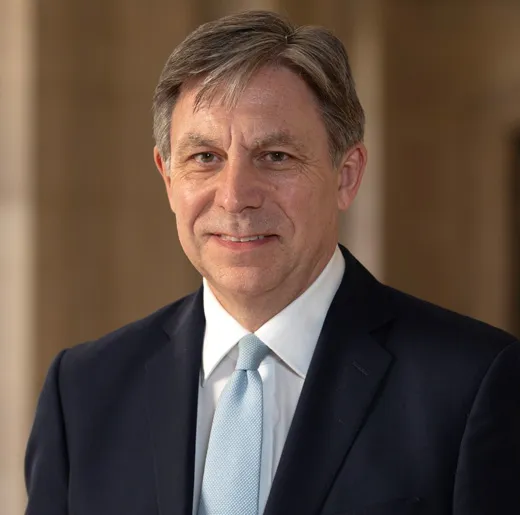
The UK economy may be heading for a ‘bumpy landing’ warned a Bank of England rate-setter — but this comes as Britain is forecast to be the second-fastest growing advanced economy in the world by the International Monetary Fund.
The Bank’s Monetary Policy Committee member Alan Taylor (pictured) said that a weaker scenario for the UK, this year and next, was increasingly likely.
Taylor, one of the more dovish members of the MPC, feared that the country was heading into a situation “where inflation undershoots, and goes below target in late 2026, and the economy moves into a weakened state for a sustained period, with output and employment below potential, leading to undue damage to economic activity”.
He was speaking at a meeting in King’s College, Cambridge.
His comments come after the Bank’s nine-strong Monetary Policy Committee voted 7–2 earlier last month to maintain Bank rate at 4%, with Taylor and Swati Dhingra pressing to cut the interest rate by a quarter point to 3.75%.
The Bank expects that the cost of living, currently at 3.8%, will hit 4% this month, before falling back to its 2% target by mid-2027.
Money markets do not expect another rate cut at the MPC’s two remaining meetings this year.
Taylor added in his speech that the UK could find itself on the end of a “double diversion phenomenon” as US President Donald Trump’s tariff war alters trade flows.
The MPC external member said: “First, the US raises barriers on imports from low-cost producers, who then redirect their goods to third countries, like the EU, who in turn respond with further barriers to those low-cost producers, who then move on again to direct their large flows of exports to an ever-smaller target group of open export markets.
“Naturally, the UK comes to mind as one of those potential targets.”
However, Taylor’s speech comes as the IMF predicted the UK would be the second-fastest growing G7 economy, behind the UK, but accompanied by the highest inflation.
The IMF’s latest World Economic Outlook comes ahead of Chancellor Rachel Reeves’ Budget on 26 November.
The body said UK growth would hit 1.3% this year, up 0.2% from its April forecast, due to “strong activity in the first half of 2025” and a favourable UK-US trade deal announced in May.
The body expects growth will remain at 1.3% next year, down 0.1% from its April prediction.
It forecasts inflation to average 3.4% this year and 2.5% in 2026, “partly because of changes in regulated prices”.
But it adds: “This is projected to be temporary, with a loosening labour market and moderating wage growth eventually helping inflation return to target at the end of 2026.”
Quilter investment strategist Lindsay James said the report “is not welcome reading for the Treasury ahead of what is a crucial Budget in just over a month’s time”.
James added: “While persistent higher inflation risks changing consumer spending patterns and creating a wage-price spiral, the most recent employment report out today showed that wage inflation has barely changed in recent months, with average weekly earnings excluding bonuses 4.7% higher in the June-August period than a year earlier, only fractionally weaker than the 4.8% recorded in the three months to July.
“The inherent shortage of workers in many areas of the economy, combined with demographic challenges, seems likely to keep wage inflation relatively persistent.”
The Chancellor pointed out that this was “the second consecutive upgrade to this year’s growth forecast from the IMF”.
Reeves added: “It’s no surprise, Britain led the G7 in growth in the first half of this year, and average disposable income is up £800 since the election.
“But know this is just the start. For too many people, our economy feels stuck. Working people feel it every day, experts talk about it, and I am going to deal with it.”



